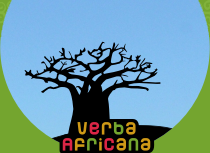Waridi lisilo miba (by Seif Selim)
Author and contextThe development of taarab asilia in Zanzibar
The song Waridi lisilo miba (both lyrics and music) was composed in 1960 by Seif Selim, a member of the taarab club Akhwan Safaa and a great artist, who died a few years ago. The musical and poetical production composed in those years by members of the male taarab clubs Michenzani Social Club and Akhwan Safaa, formed and re-founded in the 1950s, is considered to be the truest, ideal tradition in contemporary Zanzibari community.
The lyrics written by Akhwan Safaa and Michenzani in the 1950s and 1960s focused principally on sentimental themes. This was different from the songs composed by Siti and her group, which discussed, in a rather explicit manner, the relationships between men and women. In this poetical production, love relationships were represented through a metaphorical use of language (mafumbo) (Topp 1992: 92).
Female figures were depicted through the images of flowers, birds, fruits and other elements of the natural world. Typical titles from that period were Nanasi (Pineapple), Kunguru (Heron), Ua (Flower) (many examples reported in Khatib 1992). The song Waridi lisilo miba is also a good example of this poetic trend. In these lyrics, women are generally represented as beautiful and fragile creatures to be protected from the advances of other men. This kind of language reflected the great changes in gender relationships taking place at the time and new standards emerging in Zanzibari society (Fair 1994: 310).
After the 1964 revolution, the world of taarab radically changed in Zanzibar. The new government considered taarab songs an important way of spreading political messages, celebrating the formation of Tanzania or praising the president and party leaders. In 1964 a group called Zanzibar and Pemba Dramatic and Musical Club was founded, a prototype of the Culture Musical Club, created a year later. All the great artists from the big clubs, like Michenzani and Akhwan Safaa were invited, as well as many musicians who were playing in small taarab clubs and kidumbak groups, i.e. smaller, informal and less well-equipped bands which used to perform in the rural areas or in the urban suburbs (Mgana 1991: 75).
With the creation of the Culture Musical Club, the taarab clubs in Zanzibar were put under the control of the district ASP (Afro-Shirazi Party) in every urban area, for instance Akhwan Safaa was affiliated to the Malindi ASP district and renamed Malindi. The kidumbak groups were more difficult to supervise, as were the women’s clubs before the 1980s when women’s taarab clubs had to be registered (Topp 1992: 166-167).
In the political phase after the revolution, the Zanzibari government ensured that the radio would only broadcast taarab songs with political and didactic content, and many writers, like Idi Farhan and Seif Selim of Akhwan Safaa/Malindi, stopped composing lyrics in those years because of their ties to the conception of taarab poetry as apolitical entertainment, handling sentimental themes (Topp 1992: 103).

